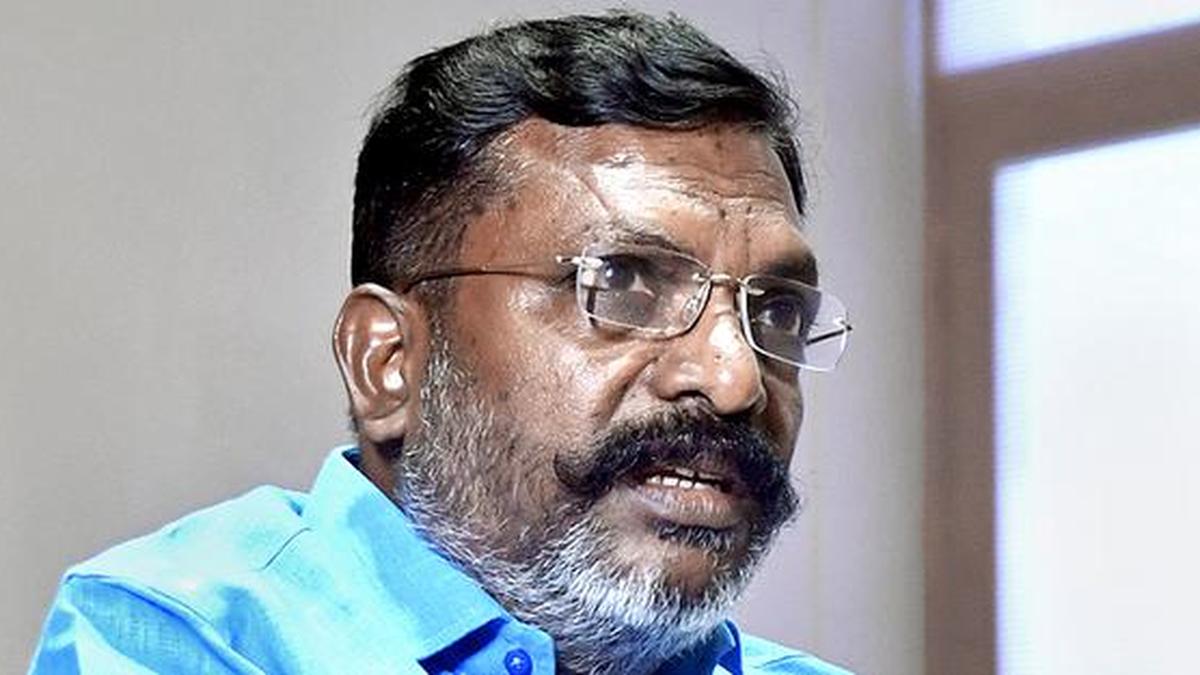 |
|
The recent Delhi Assembly election results have sparked considerable debate within India's political landscape. VCK leader Thol. Thirumavalavan's assertion that a lack of unity among the INDIA bloc parties contributed significantly to their defeat underscores a critical point about the challenges facing opposition coalitions. His statement highlights the complex dynamics within the opposition and the need for a more cohesive strategy for future elections. The INDIA bloc, while presenting a united front on a national level, evidently struggled to translate this unity into effective local campaigns. The absence of coordinated efforts, potentially stemming from differing priorities and internal power struggles, created vulnerabilities that the ruling party effectively exploited. This points to a broader issue regarding the effectiveness of opposition coalitions in navigating the nuances of regional politics, especially in a diverse nation like India where local issues and party allegiances frequently overshadow national agendas. The observation raises important questions about the nature of coalition building, the strategic importance of grassroots mobilization, and the role of intra-coalition communication in ensuring effective electoral outcomes. Moving forward, it is vital for opposition parties to address these shortcomings and develop stronger mechanisms for intra-coalition cooperation, resource sharing, and candidate selection to improve their electoral prospects.
Beyond the immediate analysis of the Delhi election results, Thirumavalavan's comments on the alarming rise in sexual violence against women in Tamil Nadu highlight a pressing social issue. This observation connects to a broader pattern of violence affecting vulnerable groups, including Dalits and minorities. The escalation of such crimes demands serious attention from both governmental and societal perspectives. It underscores the urgent need for effective law enforcement strategies, robust support systems for survivors, and comprehensive preventive measures to address the root causes of this violence. The lack of adequate protection and the inadequate response mechanisms perpetuate a climate of impunity, thereby emboldening perpetrators. This necessitates a multi-pronged approach that includes increased police vigilance, improved judicial processes, and societal programs aimed at promoting gender equality and challenging patriarchal norms. The implementation of such measures requires a significant commitment of resources and a sustained effort to create a safer and more equitable society for women.
The Tirupparankundram row, alluded to by Thirumavalavan, serves as a stark reminder of the fragility of communal harmony and the potential for religious polarization to be exploited for political gain. The controversy, stemming from the district administration's actions, underscores how seemingly minor incidents can escalate into major communal conflicts if not handled with sensitivity and impartiality. The BJP and Sangh Parivar organizations' alleged exploitation of the situation exemplifies the opportunistic nature of divisive politics and the danger of manipulating religious sentiments for electoral advantage. This incident highlights the importance of impartial governance, particularly in situations involving religious practices and minority communities. The actions of officials should uphold the principles of equality and fairness, ensuring that all citizens are treated with respect and their rights protected. Furthermore, it underscores the need for political leaders and religious organizations to exercise responsible leadership, discouraging inflammatory rhetoric and promoting interfaith dialogue and understanding. The long-term health of a pluralistic society depends on the ability of its institutions and leaders to uphold the rule of law, ensure religious freedom, and actively combat any attempts to sow discord amongst different communities.
In conclusion, Thirumavalavan's observations encapsulate several critical aspects of the current Indian political and social climate. The lack of unity within opposition parties, the alarming increase in violence against women, and the recurrence of communal tensions all demand immediate and concerted efforts to address these problems. Effective governance, responsive policymaking, and a committed civil society are essential to mitigate these challenges and build a more just and equitable society. The path forward requires proactive measures to strengthen coalition building, enhance law enforcement, and promote interfaith harmony to ensure the well-being of all citizens. The lessons learned from recent electoral outcomes and ongoing social issues must be harnessed to develop more effective strategies and foster a more inclusive and peaceful society.
